Jill Carnegie is the founder of Valley of the Kings Sanctuary (VOTK) situated in Sharon, Wisconsin.
This extraordinary sanctuary is the second oldest big cat rescue facility in the United States, dedicating itself to the rescue and rehabilitation of animals that have suffered cruel abuse at the hands of humans for over half a century.
VOTK provides refuge for a diverse range of big cats, many of whom have endured unimaginable mistreatment resulting in extreme malnourishment and physical deformities.
These majestic creatures have been exploited by individuals who have callously profited from their pain and suffering as a mere source of entertainment.
Driven by an unwavering passion, Jill has devoted her life to the compassionate care of lions, tigers, bears, and numerous other species fortunate enough to find solace within the sanctuary’s boundaries.
The Exotic Animal Trade
Exotic animal trading represents a significant industry, generating over $15 billion annually. Surprisingly, in various parts of the United States, it remains legal to purchase, trade, and breed captive animals.
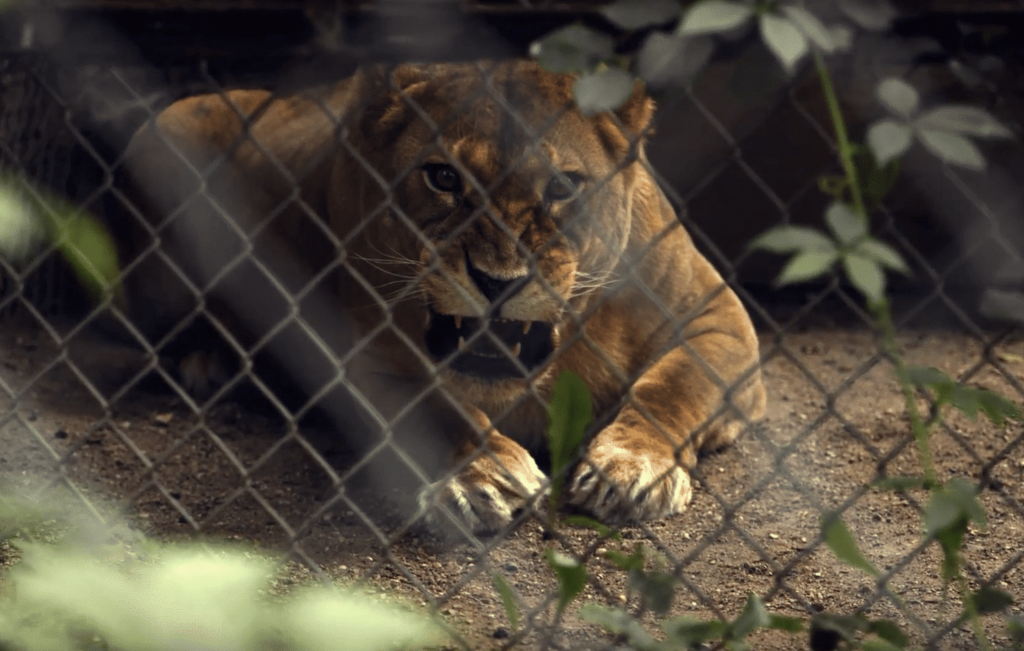
Unfortunately, once these exotic animals become possessions of owners, their lives are often characterized by misery and cruelty. Many endure confinement in inadequate enclosures where they suffer from malnutrition and lack of outdoor exposure.
Regrettably, these animals are exploited as mere property, disregarding their sentience, enabling individuals to utilize them as revenue sources within lucrative for-profit enterprises.
Big Cat Exploitation
Big cats, particularly, are used at a young age for cub petting attractions that bring joy to humans but subject the animals to immense stress.
Jill expressed her disapproval, highlighting the sadness of the situation and discouraging people from paying to hold baby cats. She further described the distressing process of taking babies away from their mothers, bottle-feeding them, and passing them around until they become exhausted and upset.
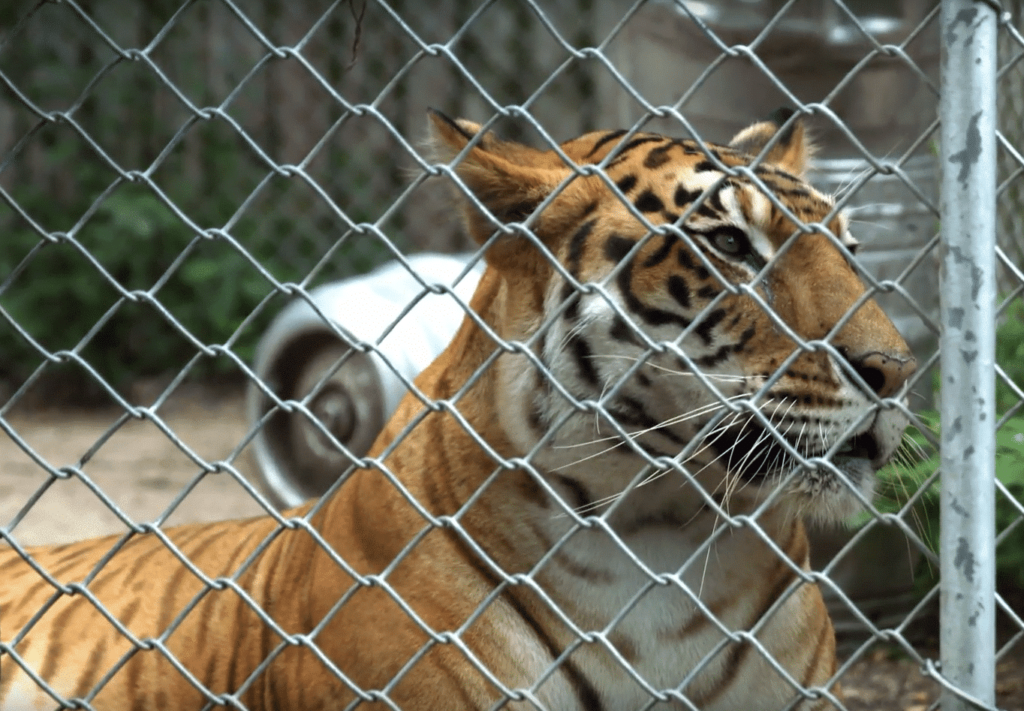
Moreover, the cub petting practice has a limited timeframe before the irresistibly adorable cubs grow into dangerous juvenile cats. Jill pointed out the lack of consideration for what happens to these animals once they outgrow their appeal.
The reality is grim: they require vast areas to roam and substantial amounts of food to sustain them. Young big cats quickly transition from being lucrative assets to becoming financial burdens for their owners. As a result, few are kept past the cub stage.
Unlike unwanted domestic animals, exotic owners cannot simply drop them off at an animal shelter or leave them on the side of the road. Consequently, they resort to much more sinister means of disposal. The exotic animal industry profits from trading these animals.
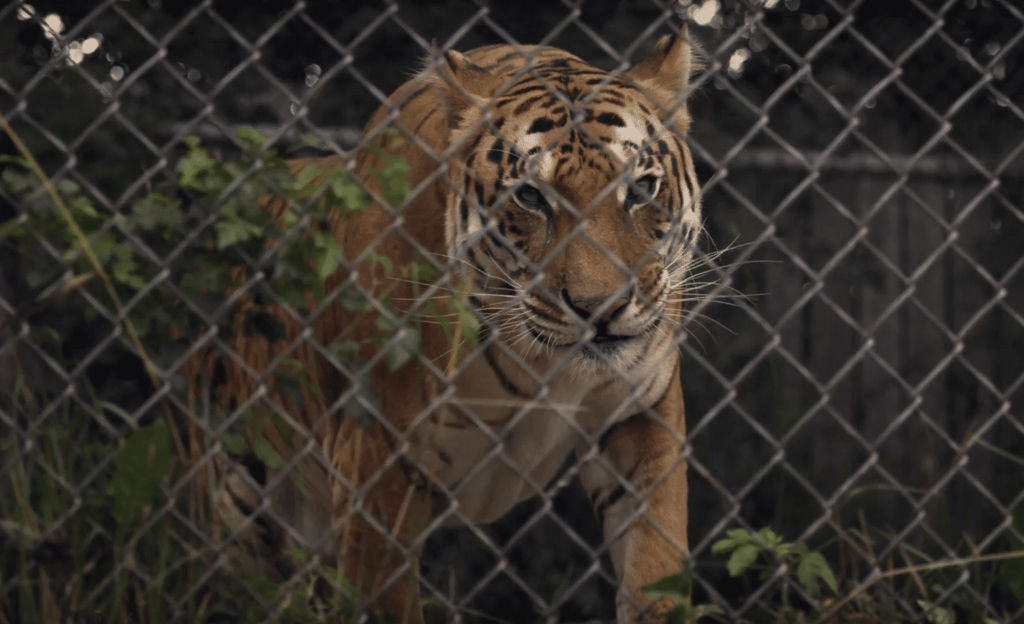
Their hides are sold as pelts, their meat is consumed, and even their bones are used as virility enhancers in eastern medicine. Specifically, lions are sold to game preserves for canned hunts, where they are hunted down by the very same people who were cuddling them just months earlier.
In Texas, big game hunters are permitted to kill lions in game reserves. They release the lion from its cage or leave it confined, then proceed to hunt an animal that was once a bottle-fed baby.
The animal seldom stands a chance, either succumbing without leaving the cage or enduring multiple painful shots. Canned hunting is a lucrative business according to PETA, with “hunters” paying exorbitant amounts, up to $45,000, to hunt and kill sedated or tethered lions.
Unfortunately, these lions often face a slow and agonizing death as hunters aim for their abdomen, ultimately wanting to display the animal’s head as a trophy.
Although canned hunting has been outlawed in 20 states, it remains prevalent in many others. However, the Big Cat Act, established in 2023, will significantly impact the practice as it prioritizes animal welfare, potentially leading to the scarcity of lions and tigers.
About The Big Cat Act
The Big Cat Public Safety Act (Public Law No: 117-243) was signed into law by President Biden on December 20, 2022.
Enforced by this legislation is the prohibition of private ownership of lions, tigers, leopards, cheetahs, jaguars, cougars, and hybrid species.
While individuals who currently possess big cats are grandfathered in, they are required to register their animals. This ensures that first responders and animal control are aware of the presence of such big cats in their possession.
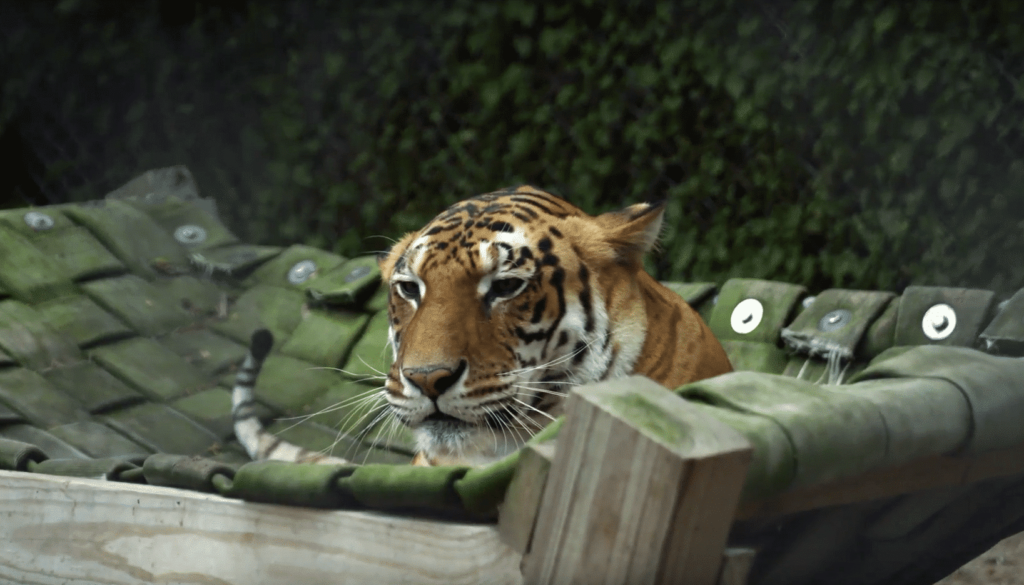
Furthermore, breeding of existing big cats and their sale for parts is prohibited by the law. This provision is expected to significantly reduce the rampant backyard breeding practices prevalent throughout the United States.
In addition, the law effectively puts an end to the cruel practice of cub petting by disallowing direct contact between the public and big cats. This measure aims to break the vicious cycle of these young cats, who are typically discarded from the business at just 12 weeks old, being funneled into the exotic pet trade.
With exceptions for universities, zoos, and sanctuaries like Valley of the Kings, the law aims to close significant loopholes in private big cat ownership.
However, it should be noted that the legislation does not currently address the issue of canned hunts. While this cruel practice has been banned in 20 states, it continues to flourish in others. The Big Cat Act of 2023 marks a crucial step towards the preservation of lions and tigers.
About Valley of the Kings Sanctuary
Jill has been operating VOTK for decades, having purchased the land explicitly for the purpose of providing a home for unwanted and abused tigers. Over the years, the sanctuary expanded its mission to include all big cats and various other unwanted animals.
Currently, VOTK houses a diverse range of animals, including tigers, bears, wolves, foxes, bobcats, peacocks, emus, horses, cattle, feral cats, a serval, a giant tortoise, and one female lion.
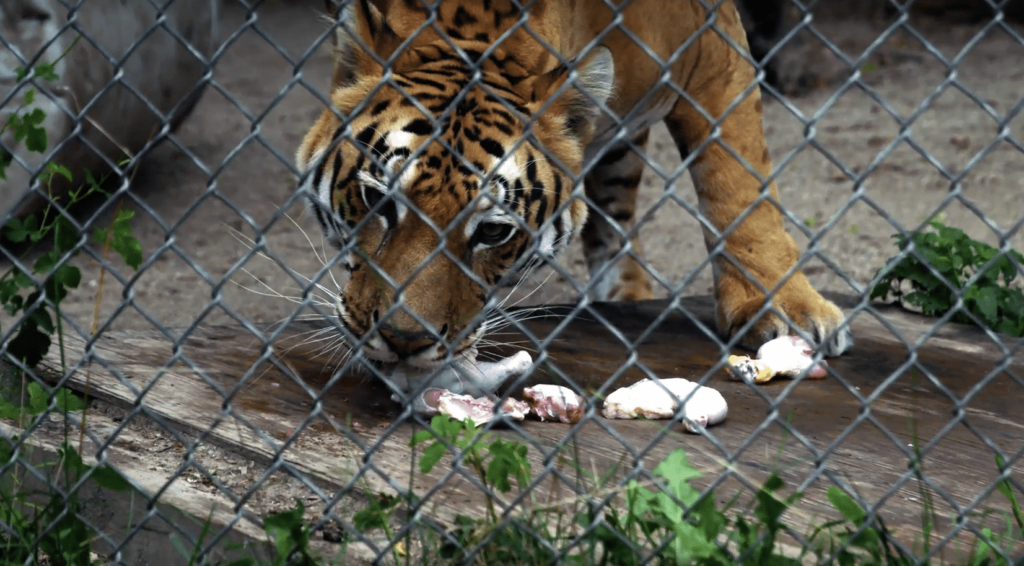
Throughout its existence, the sanctuary has rescued big cats that had endured mistreatment in circuses, resulting in permanent burn marks from fire hoops. Others had their jaws wired shut in the film industry to prevent biting, while some faced euthanasia due to their age.
Jill has highlighted that many zoos contribute to this issue by discarding animals once they reach a certain age. She emphasizes that while big cat cubs are popular attractions, they often lose value after four months and are consequently euthanized to make space for new cubs the following year.
Another way VOTK rescues animals is by taking in big cats seized from criminals who unlawfully keep them as intimidating pets.
Did you miss Niccalina Santilli’s Featured Showcase?
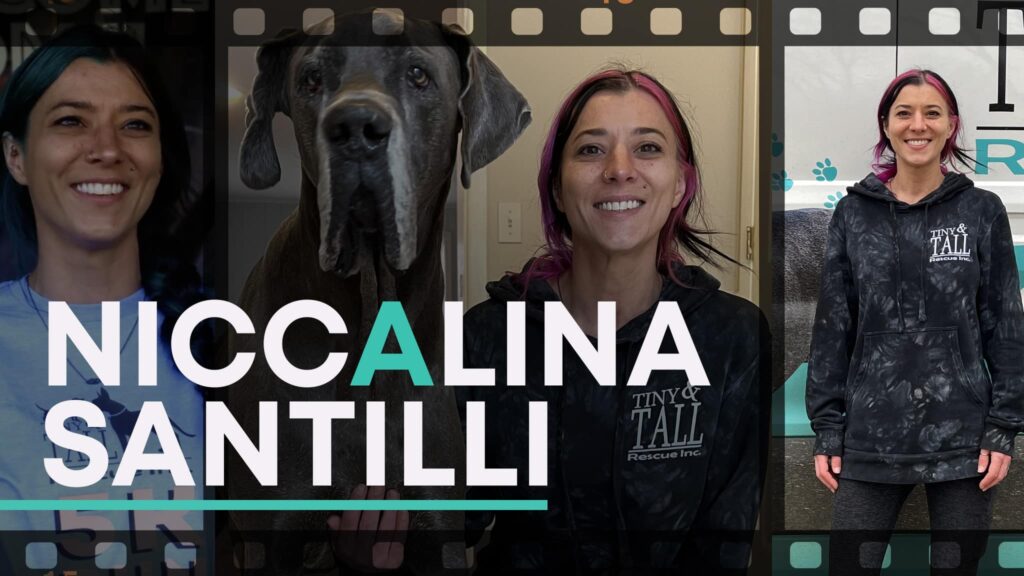
Significant malnourishment and deformities from years of confinement in cramped enclosures accompany big cats rescued from criminal situations.
Despite VOTK’s indispensable role for the government, the sanctuary has never received any assistance in the form of funding. Jill asserts that they do not receive state or federal funding whatsoever. When an institution sends an animal to VOTK, it becomes solely their responsibility to care for it with no financial aid.
Instead, the sanctuary relies heavily on private donations from supporters and local businesses to cover expenses such as providing approximately 600 lbs. of meat daily for the animals, administering medications, and paying salaries to staff members. The dedicated group of volunteers plays a crucial role in sustaining the sanctuary by carrying out tasks such as animal care, enclosure maintenance, and constructing structures to accommodate the constant influx of new rescues.
Why Jill Carnegie Is A Hero
Jill has devoted her life to providing care for animals who have suffered abuse and neglect from others. Despite their challenging medical conditions and deformities, she rescues them and offers them a safe haven where they can live the remainder of their lives in peace. Jill ensures they are well-fed, surrounded by companionship, and provided with toys.
Interestingly, Jill establishes a stronger bond with the animals under her care than with other people. She observes that despite being apex predators, the animals are remarkably joyful and “live for love.”

Jill firmly believes that once these animals arrive at her sanctuary after a lifetime of mistreatment, she can sense their gratitude for their newfound lives. She emphasizes that they are not vicious, malevolent creatures; rather, she claims that humans are the ones responsible for such behaviors.
Despite operating VOTK for many years, Jill has never received any financial benefit from the sanctuary. She frequently covers the shortfall in donations with her own money.
“I get by, I live very primitively, I don’t take paychecks,” she explains. “I’ve never taken a paycheck in all the years I’ve been doing this. Everything that comes in goes directly to the animals 110%.”
Jill and her husband reside on the sanctuary’s premises alongside the animals. By bequeathing the sanctuary and her entire land to its animal inhabitants, Jill ensures that her legacy will endure long after she passes away.
Valley of the Kings Sanctuary Resources
VOTK is in a constant struggle to feed, house, and attend to the medical needs of the animals in their care.
You can support their mission by visiting the resources below.
DONATE to VOTK through PayPal.
Become a MEMBER to visit the sanctuary.
Show support by buying something off their SUPPLIES WISH LIST.
Make a direct purchase for the sanctuary from AMAZON, TARGET, or CHEWY.
Buy some VOTK MERCH.
Meet the ANIMALS of Valley of the Kings Sanctuary.
Check out the VOTK WEBSITE.
Visit Valley of the Kings Sanctuary’s FACEBOOK page for updates and videos.